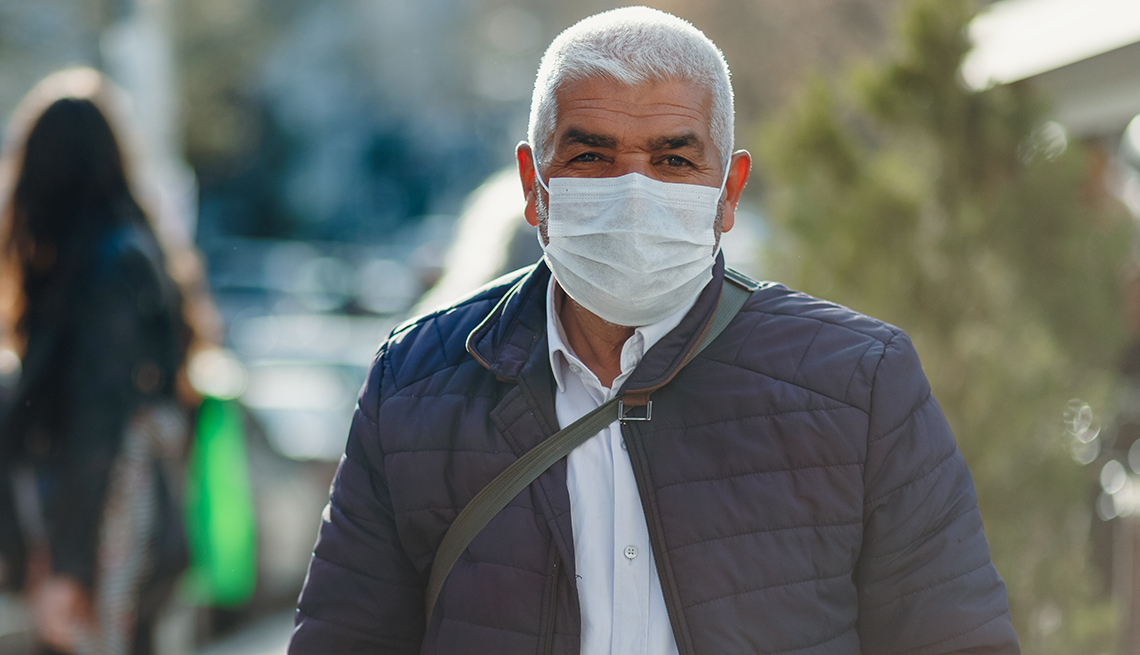
The facts behind 7 common face mask misconceptions
- Select a language for the TTS:
- UK English Female
- UK English Male
- US English Female
- US English Male
- Australian Female
- Australian Male
- Language selected: (auto detect) - EN
Play all audios:

MYTH 4: YOUR CLOTH FACE COVERING PROTECTS YOU FROM GETTING A CORONAVIRUS INFECTION. Cloth masks may reduce your risk of getting infected, but there haven't been enough studies on them
“in real-world settings” to know for sure whether they protect the wearer from becoming infected with the coronavirus, the National Academies of Sciences, Engineering, and Medicine (NASEM)
reports. What's more likely is that cloth face coverings help prevent an infected wearer from spreading disease to others by minimizing the dispersal of respiratory droplets via
talking, coughing and sneezing. (Studies looking at the effects of cloth face masks on influenza and other diseases also support this theory, NASEM points out.) Even with a face mask on,
it's important not to abandon other preventative measures, such as frequent handwashing and physical distancing, the CDC says. Mitigating the risk of COVID-19 (the illness caused by the
coronavirus) requires a multipronged approach, “which includes social distancing and isolation and hygiene and wearing the masks,” explains Gonzalo Bearman, M.D., an associate hospital
epidemiologist and chair of the Division of Infectious Diseases at the Virginia Commonwealth University School of Medicine. “It's not one or the other. It's all of it.” MYTH 5:
BABIES SHOULD WEAR FACE MASKS. Children under 2 should not wear a face mask, the CDC says. Neither should anyone who “has trouble breathing, or is unconscious, incapacitated or otherwise
unable to remove the mask without assistance.” MYTH 6: YOU SHOULD WEAR A FACE MASK EVEN WHEN YOU SWIM. If you plan to head to the pool or the beach this summer, don't forget to pack
your face mask. It will come in handy when you're out of the water and around others. That said, you should not wear your face mask in the pool. "The issue of getting a mask wet,
the issue of then breathing through that mask — it's a setup for danger,” says Boris Lushniak, M.D., dean of the University of Maryland School of Public Health and former acting and
deputy U.S. surgeon general. When you're in the water, the best way to reduce your risk of spreading or acquiring the virus is to keep a distance of at least 6 feet from other people
and to wash your hands often when you're done swimming. MYTH 7: YOUR FACE MASK DOESN'T NEED TO BE WASHED. Masks collect germs, so it's important to wash them after each use,
the CDC advises. If you're using a washing machine, regular laundry detergent and warm water work just fine. To wash your mask by hand, mix up a solution of bleach and water (4
teaspoons of household bleach per 1 quart of room-temperature water) and soak your mask for 5 minutes before rinsing it with cool or room-temperature water. The CDC has detailed instructions
on how to wash your face mask.
